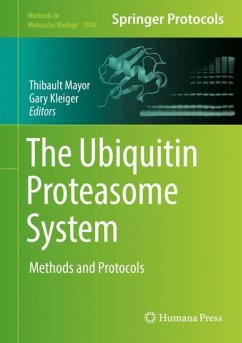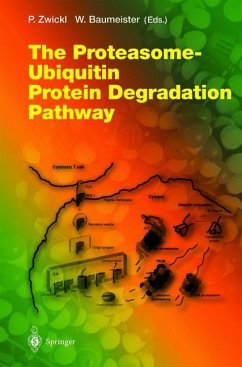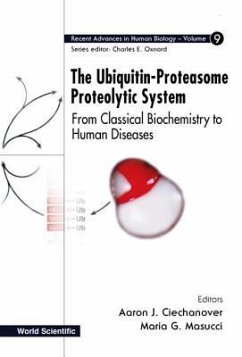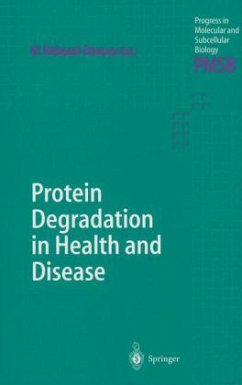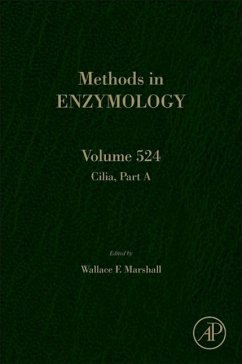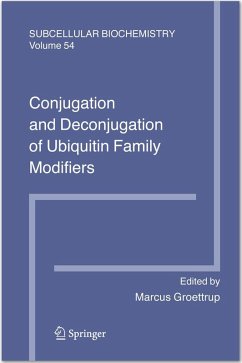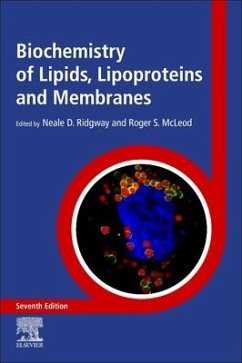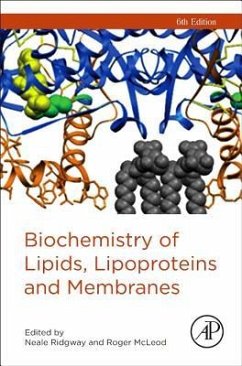
The Ubiquitin Proteasome System
Methods and Protocols
Herausgegeben: Mayor, Thibault; Kleiger, Gary
Versandkostenfrei!
Versandfertig in 6-10 Tagen
129,99 €
inkl. MwSt.

PAYBACK Punkte
65 °P sammeln!
"This volume explores numerous techniques used to study the ubiquitin proteasome system. The chapters in this book are organized into five parts and cover topics such as determining the mechanisms of action for E2s, E3s, and DUB enzymes; the latest advances to study the formation of poly-ubiquitin chains as well as their linkage types; the binding partners of proteins in the UPS; methods for structure determination by x-ray crystallography, cryo electron microscopy and SAXS; screening assays to select for degrons or modulators of E3s and DUBs; proteomics approaches in the ubiquitin field and m...
"This volume explores numerous techniques used to study the ubiquitin proteasome system. The chapters in this book are organized into five parts and cover topics such as determining the mechanisms of action for E2s, E3s, and DUB enzymes; the latest advances to study the formation of poly-ubiquitin chains as well as their linkage types; the binding partners of proteins in the UPS; methods for structure determination by x-ray crystallography, cryo electron microscopy and SAXS; screening assays to select for degrons or modulators of E3s and DUBs; proteomics approaches in the ubiquitin field and methods to study 26S proteasome function. Written in the highly successful Methods in Molecular Biology series format, chapters include introductions to their respective topics, lists of the necessary materials and reagents, step-by-step, readily reproducible laboratory protocols, and tips on troubleshooting and avoiding known pitfalls.
Thorough and authoritative, The UbiquitinProteasome System: Methods and Protocols is a valuable resource for both experienced and novice scientists who are interested in expanding their knowledge in this field.
Thorough and authoritative, The UbiquitinProteasome System: Methods and Protocols is a valuable resource for both experienced and novice scientists who are interested in expanding their knowledge in this field.



